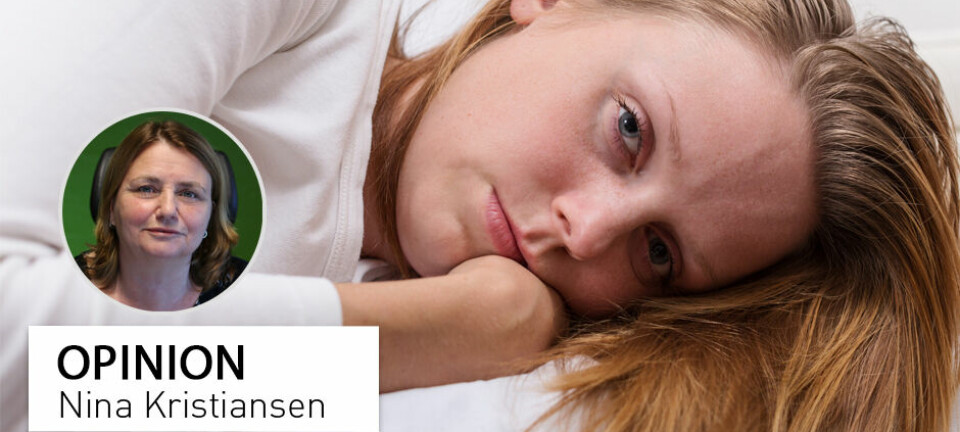
New study on long Covid contradicts other studies – do patients have an overactive immune system or not?
In a new study, researchers found no evidence of an overactive immune system as other studies have shown. They suggest that long Covid might instead be caused by genes that fail to deactivate. Others cautions against drawing definitive conclusions from a single study.
Around the world, researchers are searching for biomarkers of long Covid – physical traces of the illness left in the body.
In a new study from Stavanger University Hospital, researchers have looked more closely at something called mast cells.
Mast cells play a key role in the body’s innate immune system. They recognise and respond to everything from viruses and bacteria to allergens and snake venom. These cells are most commonly associated with allergic reactions such as hay fever and hives.
One prevailing theory is that long Covid stems from an immune system that overreacts and fails to switch off, continuing to fight the virus even after it has been eliminated from the body.
However, Professor Emeritus Roald Omdal and the research team at Stavanger University Hospital found no evidence to support this theory.
No signs of inflammation
Mast cells have not received much attention as an explanation for long Covid, but they are included in a list of eight leading theories published in Nature Reviews Immunology last year.
In this new study, researchers compared 24 individuals who developed long Covid after a Covid-19 infection with 24 others who also had Covid-19 but did not develop long Covid.
Most viewed
Two specific markers for mast cell activation were examined.
The results showed no significant difference between those with long Covid and those who recovered. There was no evidence of mast cell activation. Additionally, the researchers found no differences in other inflammation markers, such as CRP.
CRP is a protein that increases when there is inflammation in the body.
Should be measured long after infection
These findings are inconsistent with other studies that have found signs of immune system activation.
Omdal believes he knows why.
“The key difference between our study and those showing various types of immune activity lies in the timing of the tests,” he says.
“Many other studies conducted their tests much sooner after the initial Covid-19 infection, at a time when the virus might still be present and triggering an immune response,” he explains.
The study from Stavanger was conducted more than a year after the initial infection that triggered long Covid.
“Our hypothesis is that long Covid is one of several forms of post-viral fatigue. This phenomenon is also seen in viruses like Epstein-Barr, which can cause prolonged fatigue. There are also many similarities between ME and long Covid,” Omdal points out.
Genes that don't switch off
When we get sick, we are supposed to feel unwell, explains Omdal. This is called sickness behaviour. We are meant to feel tired and weak, get a fever, and sleep a lot. Our genes regulate this response.
The Stavanger research group’s theory is that, in some people, this sickness behaviour does not turn off.
“It’s an activation of neurons in the brain that triggers this behaviour,” says Omdal.
Whether this turns off again or not could depend on how our genes are regulated.
Chronic fatigue without a clear cause might have another explanation:
“We also think that many people with these symptoms might have an underlying disease that hasn’t been identified. Fatigue is a common symptom in many chronic illnesses,” he says.
Don’t draw too many conclusions from this
“The fact that these researchers didn’t find a difference in mast cell activity means just that – they didn’t find a difference,” says Gunnveig Grødeland.
She is a vaccine researcher at the University of Oslo and Oslo University Hospital.
“I think it's great that they’re investigating this. But you can't assume other mechanisms are at play just because no difference in mast cells was found,” she points out.
Grødeland notes that there are currently many interesting mouse studies emerging from the USA and Canada.
For instance, researcher Robyn Klein has conducted studies showing that Covid-19 vaccines protect mice from long Covid. In mice with long Covid, they found an inflammatory protein called interleukin in the brain, which immune cells release when the body is attacked by a virus. This caused memory loss in the mice.
However, vaccinated mice were protected from this brain inflammation, says Grødeland.
“The takeaway is that there are still many hypotheses and possibilities to be explored here, both in the innate and adaptive immune systems. There’s a lot we still need to figure out,” she says.
There may be something unique about long Covid
Some studies have found no difference in symptoms between those who were infected with Covid-19 and developed long Covid, and those who believed they had long Covid but were never infected.
“We know that fatigue and memory problems are common in the general population. So, what would have been present without Covid-19, and what is a direct consequence of Covid-19?” Grødeland asks.
She has also considered that these reactions might be similar to those seen after illnesses like the flu.
“I’ve wondered, why should it be any different? But research has found, for instance, a signaling molecule called interferons in the brains of people with long Covid after a SARS-CoV-2 infection. This hasn’t been found in those who’ve had the flu,” she says.
“Maybe we haven’t searched well enough in flu cases, or maybe there really is a difference. Right now, I’m open to many different interpretations,” she says.
A broad term that needs to be broken down
Researchers have long suggested that long Covid is not just one condition.
“It’s a catch-all term that should be defined and broken down, so we understand what’s happening in the body,” says Grødeland.
Most studies on long Covid focus on aspects other than mast cells.
“But mast cells are part of the picture, absolutely. It’s a small piece of the puzzle. And in research, small puzzle pieces are crucial to building a complete understanding of anything,” she says.
———
Translated by Alette Bjordal Gjellesvik
Read the Norwegian version of this article on forskning.no
References:
Altmann et al. The immunology of long COVID, Nature Reviews Immunology, vol. 23, 2023. DOI: 10.1038/s41577-023-00904-7
Lenning et al. No signs of mast cell involvement in long-COVID: A case-control study, Scandinavian Journal of Immunology, 2024. DOI: 10.1111/sji.13407
Related content:

Subscribe to our newsletter
The latest news from Science Norway, sent twice a week and completely free.





































